Our work on tree genetic resources, sustainable forest management, and soil and land health is supporting efforts to halt deforestation and revive degraded lands and habitats.

Letter from the Board and Management

Board Chair

Ex‐officio Trustee ICRAF, ICRAF Director General

Ex‐officio Trustee CIFOR, CIFOR Director General
CIFOR-ICRAF operates across 64 countries, with offices in 25 countries. We currently have 739 staff and 192 active projects.
Our decades-long host country agreements with Indonesia and Kenya reflect their global leadership and deep commitment to forests, trees and agroforestry.

publications
publication downloads
citations
website page views
reach on social media
media articles
We are deeply grateful for the financial support of our funding partners and the collaboration of our strategic partners.
funding partners
strategic partners
Our planet and the people who live on it are in the midst of a perfect storm of five interconnected global challenges: deforestation and biodiversity loss, climate change, dysfunctional food systems, unsustainable supply and value chains, and inequality. Because each crisis affects the others, solving them requires whole-system responses that consider how all people are affected and the environment is impacted over time.
Transdisciplinary science at CIFOR-ICRAF not only delivers holistic solutions but also ensures their relevance to national programmes and local communities, as shown throughout this report. By supporting local innovation rather than helicoptering in solutions from outside, we embrace cutting-edge science while working hand in hand with global, national and local communities to co-create and scale solutions that meet their needs.
We operate transformative research. For example, we seek not only to understand how gender inequity compromises sustainable development, but also to shift power asymmetries to create a more equitable future for both men and women.
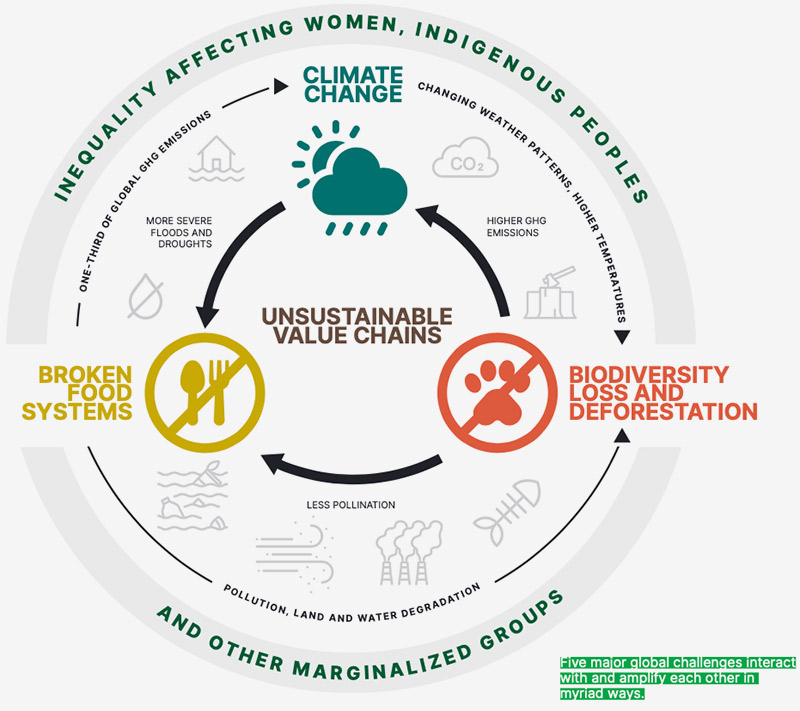
CIFOR-ICRAF is focused on contributing to a decisive shift in global trajectories: from a future of environmental destruction and livelihood crises to one of prosperity and planetary health. Uniquely equipped to deliver transformative research, we harness the power of science and innovation to improve the benefits that forests, trees, soils andtheir sustainable management can provide to all human kind, for a more resilient, equitable and prosperous future. Our work is aligned with the Sustainable Development Goals and the Paris Agreement, as well as the three Rio Conventions.
We continue to implement our 10-year strategy (2020-2030), working across five broad themes: Trees and forest genetic resources and biodiversity; Climate change, energy and low-carbon development; Soil and land health; Sustainable value chains and investments; and Governance, equity and well-being. CIFOR and ICRAF are members of CGIAR, a global research partnership for a food-secure future. In this report, find out what CIFOR-ICRAF is doing to create:
CIFOR-ICRAF delivers game-changing solutions to global and national challenges through three innovative approaches that are catalysing a positive shift in research for development across Africa, Asia and Latin America:
Transformative Partnership Platforms – alliances focused on critically important challenges
Engagement Landscapes – geographic locations where we carry out concentrated, long-term transformative work with diverse and committed partners
Flagship Products – initiatives that provide action-oriented insights into key global issues
The entities of the CIFOR-ICRAF network reinforce and advance our shared aim to unlock the potential of trees and forests to combat climate change, biodiversity loss and land degradation.
CIFOR-ICRAF delivers demand-driven, transformative evidence of the ways that trees can revitalize both landscapes and livelihoods. Find out what we are doing to create:
Our work on tree genetic resources, sustainable forest management, and soil and land health is supporting efforts to halt deforestation and revive degraded lands and habitats.
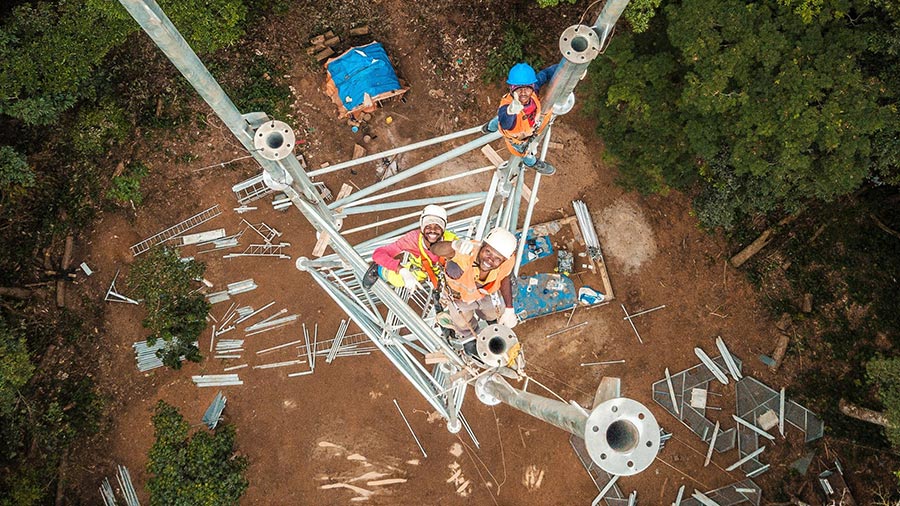
We provide critical evidence on nature-based solutions to the climate crisis, such as sustainable forest and wetland management, agroforestry and landscape restoration.
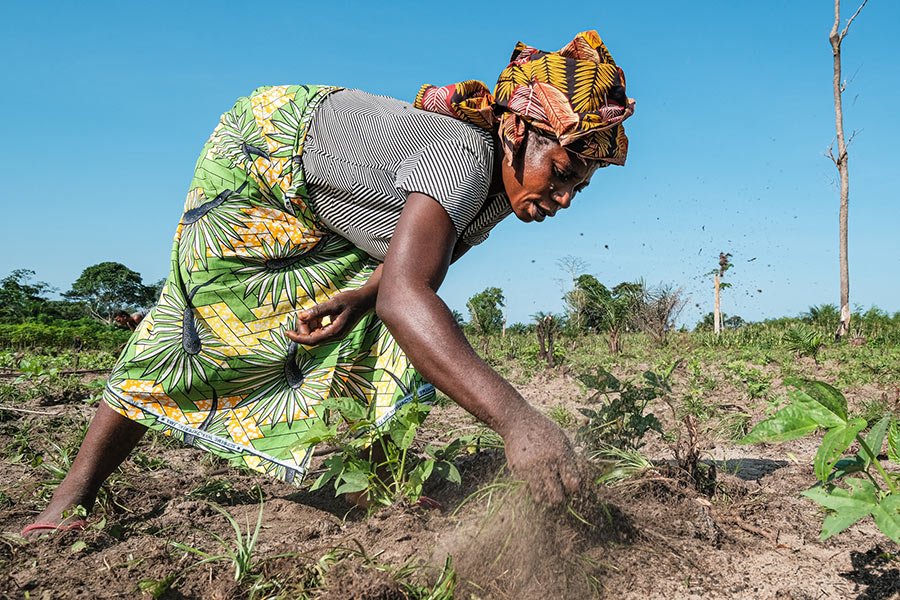
We are showing how trees and forests can transform the way we produce and consume nutritious foods, whether cultivated or wild.
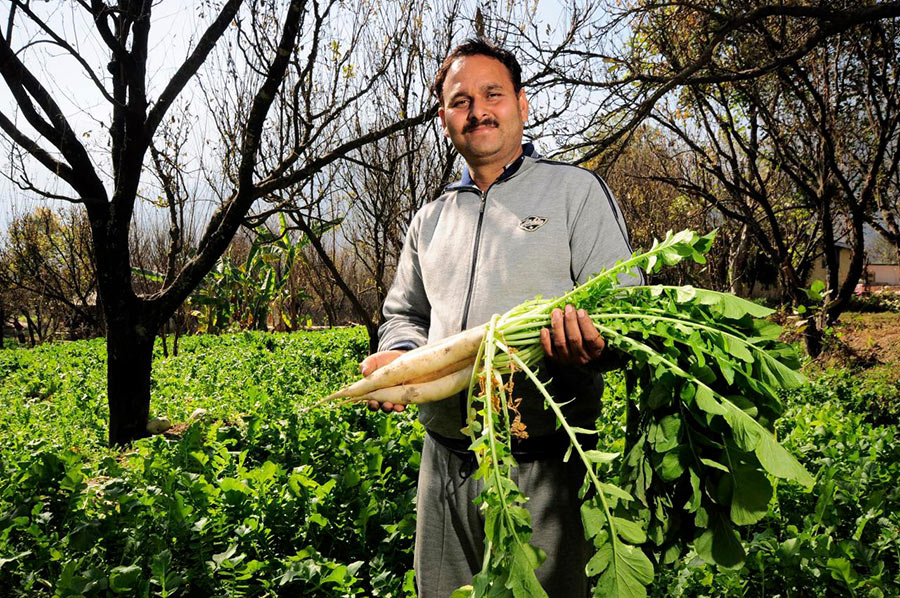
By showing how trade and investment in forest and tree products can benefit rural livelihoods, we help translate sustainable production into income.
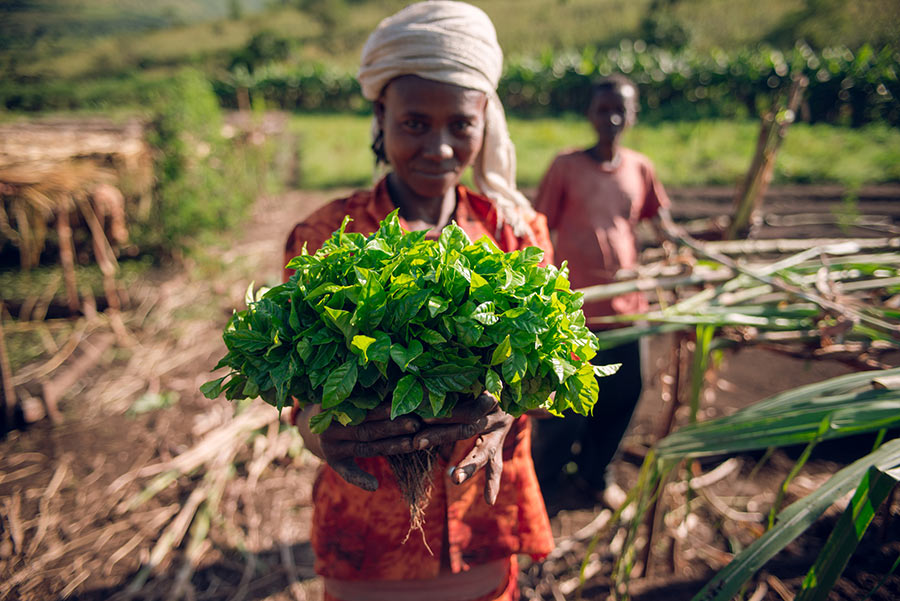
Throughout our work, we address inequalities and support practices of governance that lead to positive change for women, Indigenous Peoples and rural communities.

The CGIAR Research Program (CRP) on Forests Trees and Agroforestry (FTA) is celebrating 10 years of impactful research for development. Between 2011 and 2021, led by CIFOR-ICRAF and its strategic partners – the Alliance of Bioversity International and CIAT, CATIE, CIRAD, INBAR and Tropenbos International – FTA upheld trees and forests as drivers of transformational change.
countries with FTA projects
million in funding
partnerships over 10 years
research publications
times
million downloads
million ha of forests protected
of avoided CO2 emissions
million people
By the end of 2021, the GLF had reached 1.5 billion people, establishing it as the leading global movement on sustainable landscapes. The GLF’s connection with communities, grassroots actors and local change-makers, as well as large, multilateral donors puts it in a unique position to catalyse transformative change at scale.
In 2021, the GLF continued to seek solutions and rally action to solve the most urgent challenges of our time. It ran three major hybrid or full digital events, GLF Africa, GLF Amazonia and GLF Climate, with 900 speakers and 18,000 participants from 186 countries. 2021 also saw the launch of the UN Decade on Ecosystem Restoration with the GLF as its core partner.





organizations
youth
governments
event participants from 185 countries
leading global development institutions serving as Charter Members
people
reached through media outreach in 2021
on social media
Incubated by CIFOR-ICRAF with a mission to catalyse investments in nature-based solutions from the private sector and financial institutions, Resilient Landscapes delivers results-driven action across all 17 Sustainable Development Goals.
total website pageviews
a 11% increase
e-newsletter subscribers
a 18.2% increase
engagements
blog site pageviews
a 2.3% increase
total followers in all social media platforms
impressions
publication downloads
a 39.2% increase
engagements on Facebook
a 31% increase
followers on Instagram
a 24% increase
citations
a 12% increase
engagements on Twitter, with 178,000 followers
a 18% increase
YouTube views
media articles about CIFOR, ICRAF, FTA, RL
a 33% increase
engagements on LinkedIn 118,600 followers
a 28% increase
Flickr views